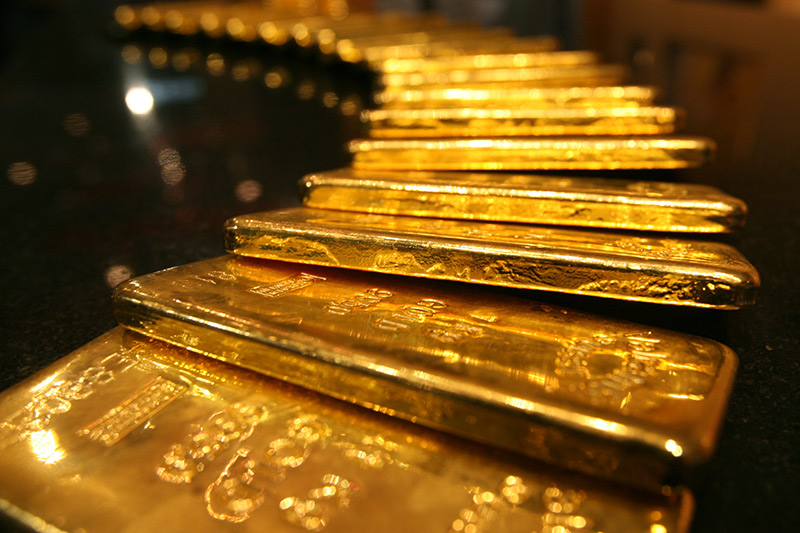By Geoffrey Smith
Investing.com -- Gold prices fell again on Tuesday as a rebound in crude oil restored a bit of faith in risk assets at the expense of havens.
Oil is rebounding as more and more U.S. states move to reopen their economies, underpinning demand that had collapsed in April under the pressure of mandatory lockdowns.
Money still continues to flow into gold-backed ETFs, however, with Bloomberg data showing a seventh-straight day of inflows on Monday, equivalent to a net 308,000 ounces, with U.S. funds dominating. ETFs have now bought over 96.4 million ounces so far this year, according to Bloomberg.
The inflows have come amid growing expectations that the Covid-19 pandemic will cause an unprecedented borrowing binge by governments, accelerating the long-term trend of fiat currency debasement. The U.S. Treasury said on Monday that it expects to borrow nearly $3 trillion in the second quarter alone.
U.S. Treasury yields, however, are taking these projection onboard with a distinct calm. Yields were only fractionally higher all along the curve on Tuesday. The reason for that is the premium put on short-term capital conservation at a time when business activity in the U.S. is collapsing. The Institute of Supply Management's non-manufacturing PMI fell to its lowest since 2009 in April, data released on Tuesday showed.
By 11:30 GMT (1530 GMT), gold futures for delivery on the Comex exchange were down 0.5% at $1,705.20 an ounce, while spot gold was down 0.2% at $1,698.70. The spread between the two has narrowed as three major refineries of gold in Switzerland have been allowed to reopen, making it easier to ship physical gold according to Comex specifications to U.S. warehouses.
Silver futures were 1.5% higher at $15.01 an ounce, while platinum futures were up 0.4% at $784.05 an ounce.
Earlier in the day, eurozone sovereign bond yield spreads had widened after Germany's Federal Constitutional Court flagged trouble ahead for the European Central Bank's quantitative easing program, with a ruling that has little direct effect on ECB actions right now, but does little to ease the underlying tension between the euro zone's rich north and its debt-ladened southern members.
